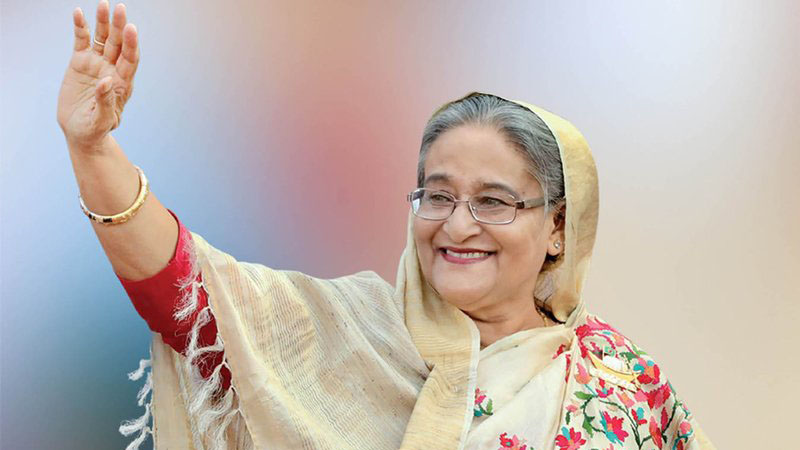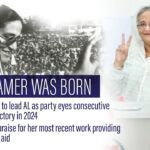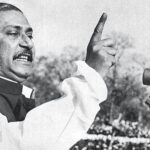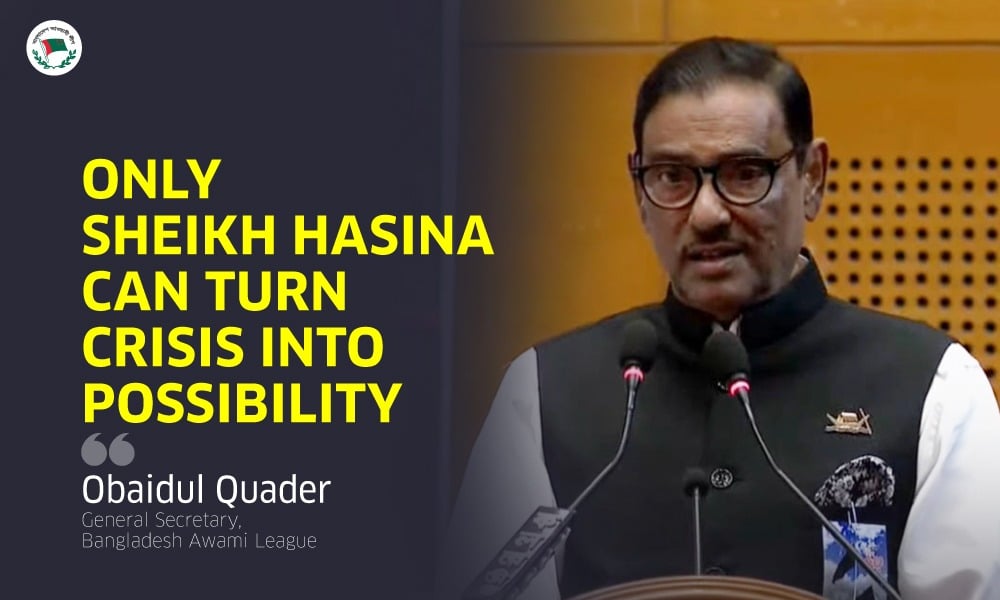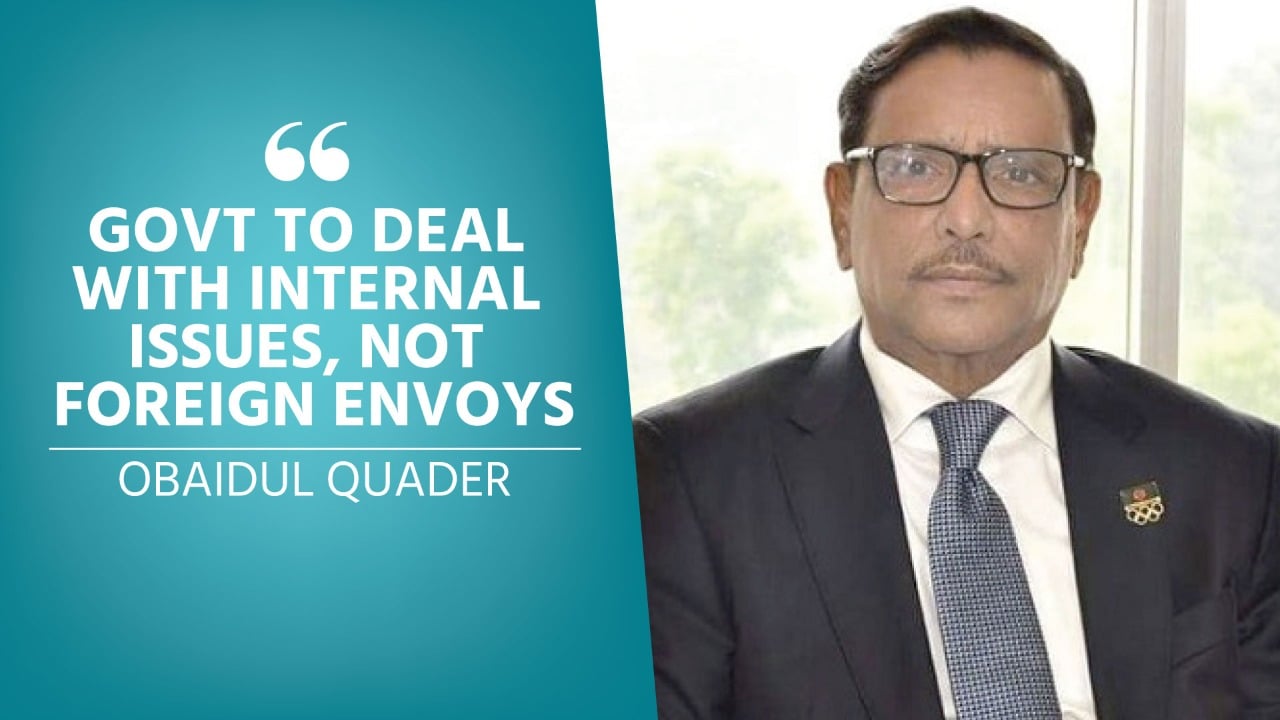- 1947: Sheikh Hasina was born on 28th September, 1947 at her parental home of Tungipara in Gopalganj district. Her father, Bangabandhu Sheikh Mujibur Rahman, is the father of nation, her mother Fazilatunnesa Mujib is known as ‘Bangamata’. She is the eldest among the five children of her parents.
- 1965: Completed secondary school from Azimpur Girls High School.
- 1967: Completed higher secondary education from Government Intermediate College (now Begum Badrunnesa Government Girls’ College). She was the elected Vice-President of the College Students’ Union for the term 1966-67.
- 1968: Got married to nuclear scientist Dr. M A Wazed Miah.
- 1971: Son Sajeeb Ahmed Wazed Joy was born on 27th July.
- 1972: Daughter Saima Wazed Hossain Putul was born on 9th December.
- 1973: Graduated from Dhaka University. She was a member of the Dhaka University unit of Bangladesh Chhatra League and the Secretary of its Rokeya Hall unit.
- 1975: Some defense personnel attacked early in the morning of 15th August 15 and killed her father, Bangabandhu Sheikh Mujibur Rahman, her mother, three brothers, two sister-in-laws, and several relatives and aides. She and her younger sister Sheikh Rehana could survive as they were in West Germany at that time.
- 1975-1981: Sheikh Hasina was forced to live in exile while restrictions were put on her return home by the then government.
- 1981: In her absence, Sheikh Hasina was elected as the President of Bangladesh Awami League. Then she returned back to Bangladesh on 17th May.
- 1983: She formed an alliance of 15 progressive, democratic parties to develop movement against martial law of General Hussain Muhammad Ershad.
- 1984: She was put under house arrest in February and November.
- 1985: She was put under house arrest from March to May.
- 1986: Her alliance took part in Third General Election, 1986 on 7th May and could win in 97 seats. Sheikh Hasina herself could win in three constituencies. She became the Leader of Opposition in the Parliament.
- 1987: In July government of military ruler General Ershad hastily pushed through a controversial legislative bill to include military representation on local administrative councils, the opposition walked out of Parliament led by Sheikh Hasina. She developed movement against Ershad regime and decided to resign from the Parliament. The government compelled to dissolve the Parliament on 6th December.
- 1990: A strong political movement and mass uprising was organized by Sheikh Hasina through her alliance of 8-parties, where other alliances and parties also moved simultaneously, against General Ershad government. General Ershad was ousted from power on 6th December.
- 1991: After General Ershad was expelled from power, the Fifth General Election was held on 7th February where Bangladesh Awami League could win in 88 constituencies. Sheikh Hasina became the Leader of Opposition.
- 1994: In Marchan anti-government movement was developed in protest of rigging by the government in a parliamentary by-election. The entire opposition in the Parliament started indefinite boycott of parliamentary sessions. The opposition led by Sheikh Hasina resigned en masse from Parliament in December.
- 1995: Bangladesh Awami League, led by Sheikh Hasina, along with its alliance developed movement for constitutional provision for general elections by non-party caretaker government.
- 1996: Bangladesh Awami League decided to boycott the Sixth General Election held on 15th February. All of its allied parties also boycotted that election. Sheikh Hasina organized intense political movement for general elections by non-party caretaker government. Government compelled to place such bill for amendment in the Parliament. The bill was passed and subsequently the Parliament was dissolved. The Seventh General Election was held on 12th June where Bangladesh Awami League won in 146 constituencies. On 23rd June, Sheikh Hasina became the tenth Prime Minister of Bangladesh. To resolve long outstanding water sharing matter of Ganges-Padma River, a historical 30-years treaty was signed with Indian government in November.
- 1997: A peace accord was signed with former militant group Jansanghati Samity in December. It brought few decades long insurgency at Chittagong Hill Tracts to an end.
- 2001: After completion a successful tenure of five years, Sheikh Hasina government handed over the charge to a caretaker government. It was the first time a government of Bangladesh could complete its full tenure and handed over the charge in due procedure. The Eighth General Election was held on 1st October where Bangladesh Awami League could secure 62 seats and Sheikh Hasina became the Leader of Opposition for the third time.
- 2004: Sheikh Hasina narrowly escaped death from grenade attack and gunfire in a meeting at Bangabandhu Avenue, Dhaka, on 21st August. 24 persons were killed in that incident and Sheikh Hasina was injured seriously.
- 2005: Formed the 14-party electoral alliance to reinforce struggle for establishing free and fare election system and democratic culture.
- 2007-2008: The Caretaker Government tried to send her in exile, but Sheikh Hasina courageously returned back to Bangladesh from her short trip to abroad without fearing potential ill treatments. A number of corruption cases were instituted against her by the Government and she was held in special prisoner for almost one year.
- 2008: The Ninth Jatiya Sangsad election was held under the caretaker government on 29th December, 2008, the grand alliance led by Sheikh Hasina won an astounding 262 seats, where only Awami League got 230 seats.
- 2009: On 6th January, 2009 Sheikh Hasina took oath as the Prime Minister of Bangladesh for the second term on 6th January. Her husband Dr. M A Wazed Miah died on 9th May, 2009. International Crimes Tribunal was set up to start trial of war criminals of Liberation War in 1971.
- 2010: On 28th January, 2010 five condemned killers of Bangabandhu Sheikh Mujibur Rahman were executed.
- 2011: In August, 2011 Sheikh Hasina was selected as the 7th among 12 top world women leaders by the Time Magazine. On 5th September, Bangladesh and India signed a pact to end their 64 years old border demarcation dispute.
- 2012: In the 67th UN General Assembly, held on 17th December, 2012, the peace-centric development model of Prime Minister Sheikh Hasina was upheld unanimously.
- 2013: On 15th July, 2013 inglorious war criminal Ghulam Azam was sentenced for 90 years for his crimes against humanity during the Liberation War in 1971.12th December, 2016 war criminal Abdul Kader Mullah was executed. He was convicted for crimes against humanity during the Liberation War in 1971.
- 2014: On 5th January, 2014, the tenth General Election was held. Awami League won in 234 seats. On 12th January, 2014 Sheikh Hasina took oath as the prime minister of Bangladesh for the third time. On 17th April, 2014 inglorious war criminal Delwar Hossain Sayeedi was sentenced till death for his crimes against humanity during the Liberation War in 1971.
- 2015: On 11th April, 2015 war criminal Muhammad Kamaruzzaman was executed. He was convicted for crimes against humanity during the Liberation War in 1971.On 31st July, 2015 physical exchange of enclaves between India and Bangladesh, and land parcels in adverse possession along with boundary demarcation was started. The entire process completed in 30th June, 2016.On 22nd November, 2015 war criminal Ali Ahsan Mohammad Mojaheed and Salahuddin Quader Chowdhury were executed for their crimes against humanity during the Liberation War in 1971.
- 2016: On 11th May, 2016 war criminal Motiur Rahman Nizami was executed for his crimes against humanity during the Liberation War in 1971. On 3rd September, 2016 war criminal Mir Quasem Ali was executed. He was convicted for crimes against humanity during the Liberation War in 1971.In June, 2016, American business magazine Forbes ranked Sheikh Hasina as the 36th most powerful woman in the world.
- 2017: In September, Sheikh Hasina granted refuge to more than 700,000 Rohingyas fleeing genocide in Myanmar.
- 2018: On 7th January, the eleventh Parliamentary Election was held and Sheikh Hasina took oath as Prime Minister for the consecutive third term.
Achievements
- 1998: The Félix Houphouët-Boigny Peace Prize by the UNESCO
- 1998: Mother Teresa Award by the All India Peace Council
- 1998: M.K. Gandhi Award by the Mahatma M K Gandhi Foundation
- 1999: The Ceres Medal by the Food and Agriculture Organization
- 2000: The Pearl S. Buck Award by the Randolph College
- 2006: Mother Teresa Lifetime Achivement Award
- 2010: Indira Gandhi Peace Prize
- 2010: UN Award for MDG Achievement in Child Mortality
- 2011: South-South Award for using ICT in developing health situation of women and children
- 2012: GAVI Alliance Award by Global Alliance for Vaccination and Immunisations (GAVI) for best performance in immunization process
- 2013: Rotary Peace Prize by Rotary International
- 2013: UN Award for halving the incidence of hunger well ahead of 2015
- 2014: South-South Visionary Award for success in education, ICT development, health coverage
- 2014: Tree of Peace Award by UN WOMEN for her her outstanding contribution to promotion of girls’ and women’s education
- 2015: CHampions of the Earth by UNEP
- 2015: ICT Sustainable Development Award by International Telecommunication Union
- 2016: Planet 50-50 Champion by UN WOMEN
- 2018: IPS International Achievement Award by The Inter Press Service for her visionary leadership in Rohingya crisis
- 2018: Special Distinction Award for Leadership by Global Hope Coalition for her contribution in Rohingya crisis
- 2018: Global Women’s Leadership Award by Global Women Summit for her outstanding contribution in creating entrepreneurs and ensuring girls education
- 2019: Vaccine Hero by Global Alliance for Vaccination and Immunisations (GAVI) for Bangladesh’s outstanding success in vaccination to immunise children
- 2019: Lifetime Contribution for Women Empowerment by Institute of South Asian Women (ISAW)
- 2019: Champion of Youth Development by UNICEF
- 2019: Tagore Peace Prize by Calcutta Asiatic Society
- 2019: Dr Kalam Memorial International Excellence Award by Dr. Kalam Memorial International
- 2021: SDG Progress Award by UN Sustainable Development Network for success in achieving SDG goals during 2015 to 2020


